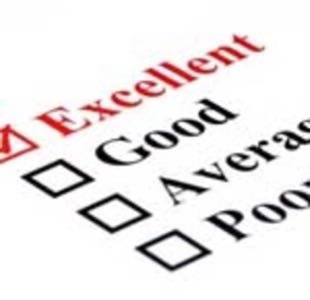Being a CEO of a company is, as one CEO recently told me with a certain amount of exasperation and exhaustion, “a 24-hour-a-day, 7 days-a-week job.” It’s all-consuming, all-encompassing, and in many ways when it comes to the success or failure of a company, all-important.

But despite the high-stakes involved in being a CEO, it’s a position that all-too-often only receives rigorous feedback and a thorough performance review when things goes desperately awry. And even then, the measurement of “a good CEO” is often merely just a reflection of “good financials.” But surely there’s more to it.
Ben Horowitz recently posted a blog post on how Andreessen Horowitz evaluates CEOs. Although he admits, in writing it, it’s also a post that explains what Horowitz himself thinks is important in evaluating (and performing) the job of CEO.
Horowitz says he looks at three key areas when evaluating CEOs:
1. Does the CEO know what to do?
2. Can the CEO get the company to do what she knows?
3. Can the CEO achieve the desire results against an appropriate set of objectives?
Horowitz divides the first question into two parts: strategy and decision making. In other words, does the CEO know where the company is headed? Horowitz calls this the company’s “story” and contends that while the CEO need not be the person responsible for creating that story, “she must be the keeper of the vision and the story. As such, the CEO ensures that the company story is clear and compelling.” This story will give meaning to the work that staff do but will also align these motivations with key decisions that must be made for the company’s direction.
And it’s these decisions Horowitz contends are particularly important: “a CEO can most accurately be measured by the speed and quality of those decisions. Great decisions come from CEOs who display an elite combination of intelligence, logic, and courage. Courage is particularly important, because every decision that a CEO makes is based on incomplete information.”
But making a decision only gets you so far, as a CEO must be able to get her company to actually follow through on the decision. Horowitz points to the leadership skills that compel and guide others to accomplish these things as being a fundamental part of what makes a good CEO. In other words, a CEO must build a strong team of capable, motivated individuals. But the CEO must also make sure that those individuals can focus on their work – and on the company’s mission – and not on bureaucracy or politics.
Of course, it’s easy to be a rockstar CEO – if you set your standards low enough. And Horowitz notes that there’s a danger for CEOs “succeed” by setting objectives too low, but also a danger of “failing” by setting objectives too high.
Horowitz closes by stating that “CEO evaluation need not be a byzantine, unstated art. All people, including CEOs, will perform better on a test if they know the questions ahead of time.”
What other criteria would you add to a CEO’s evaluation?

















